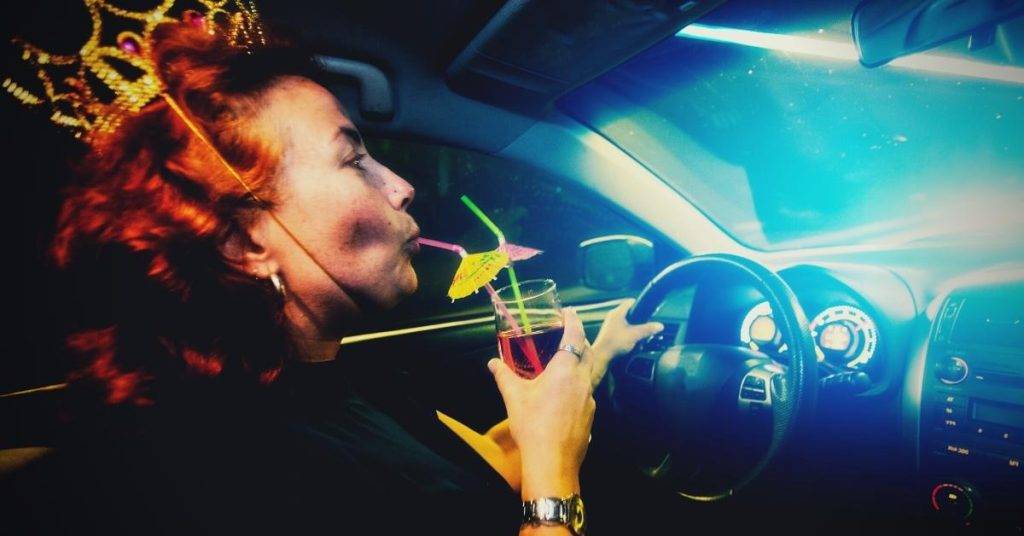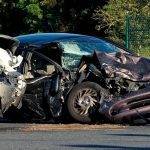Dallas Police step up enforcement of DWI amid holiday celebrations, but as the “Home for the Holidays” program took hold the city was trying to reverse a much longer-term trend of dangerous driving on Dallas roadways. According to DPD, 228 died on city roads in 2020. So far in 2021, that figure sat at 155 with more than one-third (53) of total deaths coming from pedestrians.
Dr. Courtney Edwards is the Director of Trauma Community Outreach at Parkland Hospital. “Even with all that reduction in traffic (in 2020) we still did not have a day where no one was killed on Texas roadways,” Edwards said. “We realize that what we can provide inside the hospital walls is really very minuscule compared to how we can really try to impact injury and violence within our communities.”
Edwards said it was why Parkland is one community partner supporting the goal set by the city of Dallas of eliminating traffic deaths and reducing injuries by half by 2030 as part of the Vision Zero program. Some of it is engineering, improving traffic signals, lane construction and crosswalks on city streets.
More immediate for DPD was the tripling of officers in the traffic division dedicated to combating reckless driving and prioritizing DWI arrests from November through January. Mike Mata with the Dallas Police Association said he would like to see the program expanded in the future provided DPD has enough officers. For this year, he is once again urging those who plan to drink to simply designate a driver or use one of many rideshare offerings. “It’s about not destroying lives, including your own life,” Mata added.
During the Texas Department of Public Safety (DPS) 2020 Christmas and New Year’s enforcement efforts, there were 116,810 citations and warnings issued. This included 14,499 speeding citations; 1,636 seat belt and child seat violations; 2,625 citations for driving without insurance; and 820 citations and warnings for Move Over, Slow Down violations. In addition, last year’s enforcement efforts resulted in 1,185 felony arrests, 615 DWI arrests and 355 fugitives arrested.
DPS offered the following tips for making the holiday season a safe one:
- Don’t drink and drive. Make alternate plans if you are consuming alcohol.
- Move Over or Slow Down for police, fire, EMS, Texas Department of Transportation (TxDOT) vehicles and tow trucks stopped on the side of the road with emergency lights activated. Show the same courtesy to other drivers who are stopped on the side of the road. This year alone, between Jan. 1 and Dec. 14, DPS issued 12,060 warnings and citations for Move Over, Slow Down violations.
- Buckle up everyone in the vehicle, it’s the law.
- Slow down, especially in bad weather, heavy traffic, unfamiliar areas or construction zones.
- Eliminate distractions while driving, including the use of mobile devices. Texas law prohibits the use of portable wireless devices to read, write or send an electronic message unless the vehicle is stopped. If you’re using a navigation device or app, have a passenger manage it, so you can keep your eyes on the road.
- Drive defensively, as holiday travel can present additional challenges.
- Don’t drive fatigued — allow plenty of time to reach your destination.
- On multi-lane roads, use the left lane for passing only. Not only is it courteous driving and avoids impeding traffic, Texas law requires slower traffic to keep to the right and use the left lane for passing only (when posted).
- If you can Steer It, Clear It: If you are involved in a non-injury crash and your vehicle can be moved, clear the traffic lanes to minimize traffic impact. Leaving vehicles in a traffic lane increases traffic congestion and leaves those involved with an increased risk of harm or a secondary wreck. On some highways, if you don’t move your vehicle when it’s safe to do so, it’s illegal.
- Check your vehicle to make sure it’s properly maintained and always ensure your cargo is secure.
- Keep the Texas Roadside Assistance number stored in your phone. Dial 1-800-525-5555 for any type of roadside assistance. The number can also be found on the back of a Texas Driver License.
- Report road hazards or anything suspicious to the nearest law enforcement agency.
- Monitor weather and road conditions wherever you are traveling. For road conditions and closures in Texas, visit Drive Texas.
During DPS’ 2019 Christmas and New Year’s holiday enforcement efforts combined, a total of more than 169,000 warnings and citations were issued, including 15,786 speeding citations; 2,105 seat belt and child seat violations; 3,465 citations for driving without insurance; and 1,300 for violations of Move Over, Slow Down. Last year’s enforcement efforts also resulted in 787 DWI arrests, 609 felony arrests, and 555 fugitive arrests.
Fight DWI Charges in Dallas, TX
Drinking and driving are taken seriously in Texas and can result in serious penalties. Some 90,000 men, women, and minors are arrested for a DWI in Texas annually.
According to the National Highway Traffic Safety Administration (NHTSA), there have been about 1,400 drug and alcohol-related vehicle fatalities in the state of Texas since 2009. These stats make Texas a state with one of the highest amounts of alcohol and drug-related driving accidents in the nation.
DWI offenses are not limited to just DWIs, as people could also be charged with DWI with a child passenger, intoxication assault, intoxication manslaughter, commercial vehicle DWI, or boating while intoxicated (BWI). Whichever DWI/DUI-related crime you may have been arrested for, you should not assume that going to court and pleading guilty is your only option. With an experienced DWI or DUI attorney in Dallas, you can remain out of jail and enjoy your freedom.
In the state of Texas, a person accused of drinking and driving with a blood-alcohol level (BAC) of over .08 will be charged with a DWI. However, if the person accused is a first-time offender and a minor under the age of 21, then oftentimes they are charged with a DUI, instead of a DWI. Those over the age of 21 with a BAC of over .08 are oftentimes charged with a DWI which has more severe penalties.
In the state of Texas, there is a zero-tolerance policy for minors. So if a minor has any amount of alcohol in their system they are charged with drinking and driving. For a first offense, a minor can face a license suspension of up to 1 year, a $500 fine, 90 days of community service and they will also be required to attend an Alcohol Education Program.
Adults that are charged with a DWI face more severe punishment. They can face up to 2 years of license suspension, jail time up to 180 days, a fine of up to $2000, and possibly an ignition interlock device. The punishments get more severe for repeat offenders or those with a child in the car.
A first DWI offense can occur when an individual has an alcohol concentration level over the legal limit or when their normal mental or physical abilities are impaired, even though they may feel they are perfectly capable of driving. Typically, the legal limit in Texas is equivalent to two alcoholic drinks, depending on a person’s body type and weight, the amount of food they have consumed, and how long they have been drinking.
If you are charged with a first DWI in Texas (commonly referred to as driving under the influence or DUI in many other parts of the country), you can receive very serious penalties if convicted, including possible jail time, steep fines, a driver’s license suspension, increased auto insurance rates, a mark on your criminal record and/or possible limits on educational and professional opportunities.
A second DWI offense can result in serious penalties, including mandatory minimum jail sentences, required driver’s license suspension, possible fines, monthly reporting to a probation officer, a possible criminal record, and/or requirements to file an SR-22 proof of liability insurance for at least two years.
Texas law requires Dallas County courts to order any person who has been convicted of a second DWI within five years of the previous DWI offense to install and maintain a “deep-lung” air device in their car. This is commonly known as an ignition interlock device and requires the driver of a car to blow in the machine before their car will start. If the machine detects any ethyl alcohol in their breath, the car will not start. Additionally, the machine will require the driver to blow in the machine while the driver is operating the vehicle to ensure the driver is not drinking while driving.
A third DWI offense can result in a felony conviction, which can permanently limit educational and occupational opportunities, limit an individual’s right to vote in Texas, prevent an individual from possessing or owning a gun, and/or create a criminal record.
Texas law requires Dallas County courts to order an individual who has been convicted of a third DWI offense in certain situations to install and maintain a “deep-lung breath analysis mechanism” in any car they own or operate. This device is known as an ignition interlock device and requires the driver of a car to not have any alcohol in their breath before the vehicle will start. The device also usually requires the driver to blow in the machine while the person is driving to ensure they have not been drinking and driving.
Find a Dallas Criminal Defense Lawyer | Law Offices of Richard C. McConathy
Were you arrested for a DWI in Dallas or a surrounding area of Texas? It will be critical for you to find legal representation right away for a favorable outcome.
The Law Offices of Richard C. McConathy aggressively defends alleged DWI offenders all over Texas, including both residents of and visitors to Texas. Let us take a look at your case when you call (972) 233-5700 or contact us online to schedule a free consultation.





